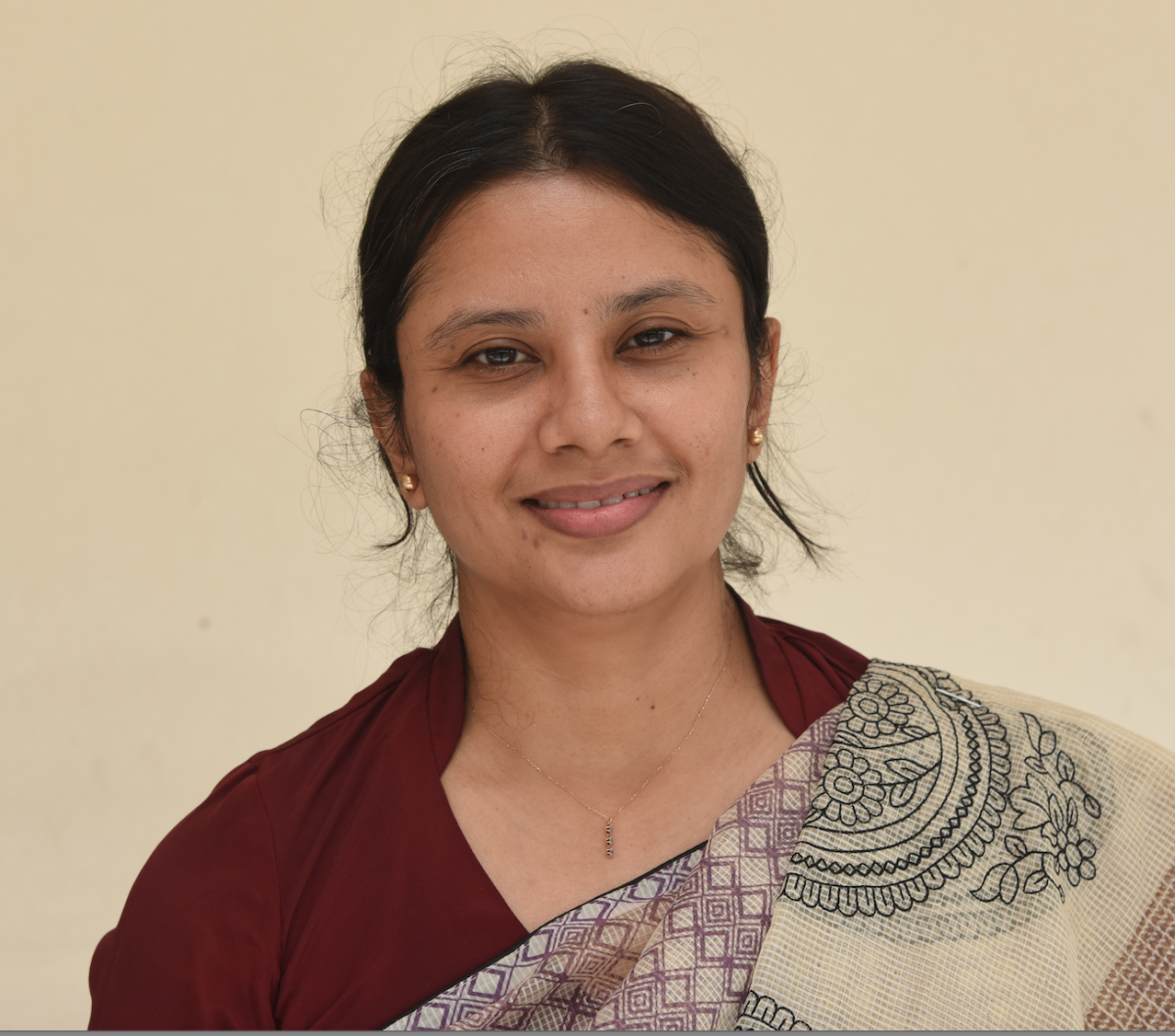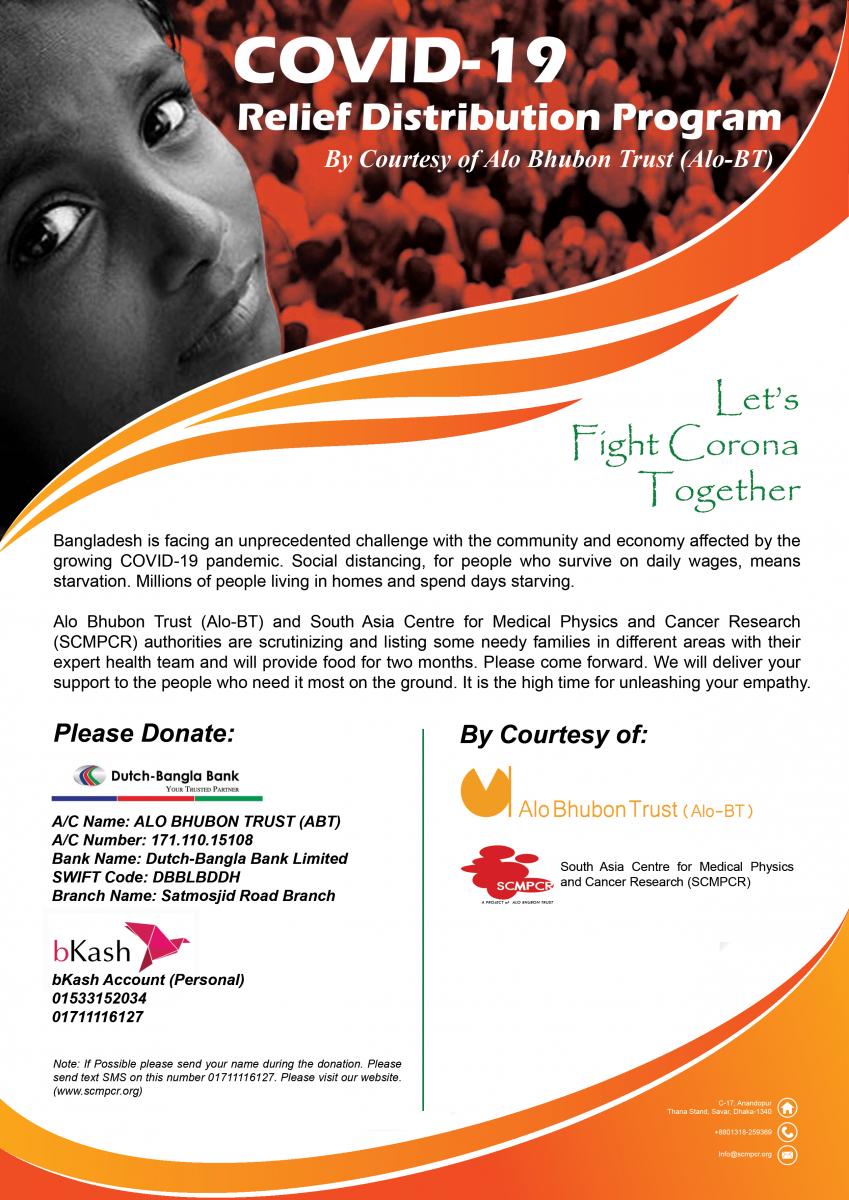Originally published in owsd.net on 18 May 2020
OWSD Executive Board member Hasin Anupama Azhari gives her perspective.
Hasin Anupama Azhari is Professor & Chairman of the Department of Medical Physics and Biomedical Engineering at Gono Bishwabidyalay University in Savar Dhaka, Bangladesh
“Though comparable to predictions for some European countries, this financial crisis will have an even more critical impact in Bangladesh.”
The first three known cases of COVID-19 in Bangladesh were reported by the country’s Institute of Epidemiology, Disease Control and Research on March 7, 2020. Ten weeks later (May 18), there are a total of 23,870 confirmed cases, 4,585 recoveries, and 349 deaths in the country. The situation in Bangladesh is critical for two reasons. First, the exact number of coronavirus patients in Bangladesh is still unclear because the numbers being tested in Bangladesh are very low: Bangladesh performs 10 test samples per million people; countries such as France, Iran, Spain, Taiwan, and the UK, are testing hundreds per million; while yet other countries test thousands (e.g. Sweden, Germany, China, Italy, Australia, South Korea and Norway).
Secondly, th e number of beds in intensive care units (ICUs) for coronavirus patients is extremely low. The capital Dhaka, has the highest number of ICU beds (just 79 compared to the city’s population of over 9 million) and in most parts of the country there are no ICU beds at all (Germany, for comparison, has 44 ICU beds per 100,000 population). The number of ICU beds available is closely linked to survival of chronic coronavirus patients. Measures being taken by the government to slow the spread have also had a profound and widespread impact on the economy. Bangladesh is one of the most economically vulnerable countries in the world, with a high proportion of the population in casual work and heavily reliant on exports of ready-made garments to those countries in Europe and Asia now suffering economic downturns because of COVID-19. As governments across the world enforce lockdowns to suppress the spread of COVID-19, and with global markets set for their worst quarter since the 2008 financial crisis, this will have a major impact on the Bangladesh economy; GDP is predicted to fall as much as 4%. Though this is comparable to predictions for some European countries, this financial crisis will have an even more critical impact in Bangladesh.
e number of beds in intensive care units (ICUs) for coronavirus patients is extremely low. The capital Dhaka, has the highest number of ICU beds (just 79 compared to the city’s population of over 9 million) and in most parts of the country there are no ICU beds at all (Germany, for comparison, has 44 ICU beds per 100,000 population). The number of ICU beds available is closely linked to survival of chronic coronavirus patients. Measures being taken by the government to slow the spread have also had a profound and widespread impact on the economy. Bangladesh is one of the most economically vulnerable countries in the world, with a high proportion of the population in casual work and heavily reliant on exports of ready-made garments to those countries in Europe and Asia now suffering economic downturns because of COVID-19. As governments across the world enforce lockdowns to suppress the spread of COVID-19, and with global markets set for their worst quarter since the 2008 financial crisis, this will have a major impact on the Bangladesh economy; GDP is predicted to fall as much as 4%. Though this is comparable to predictions for some European countries, this financial crisis will have an even more critical impact in Bangladesh.
“Now the research focus in the world is on virology and epidemiology, but the virus has an impact on many areas of medicine.”
The number of COVID-19 cases rose rapidly here during April and the lockdown has been extended until May 30, including the suspension of all offices and university activities. The university where I work, Gono University, suspended all academic activities on March 25. Faculty members are providing online classes as well as continuing their research over the internet, and discussing research methods and practices with national and international groups so that once the university is open again we can directly engage in practical work back in the labs. More than 70% of students are able to attend the classes online but in many remote areas there are problems with internet connection and in these cases we provide an outline of lectures and assignments. During our classes we are also advising students how to survive during the crisis, helping them be aware of best practices and their responsibility to society. We are also sending out guidelines and topics for research work in fields related to the pandemic. I am the head of the Department of Medical Physics and Biomedical Engineering, and most of my students work in hospitals in radiotherapy departments. They are now needed in the hospitals on a shift basis so we are trying to continue our research work with them even though their available time is limited. These students and others from the faculties of Microbiology and Pharmacy are also engaged in ensuring biosafety in the production of sanitiser and coronavirus testing kits. Now the research focus in the world is on virology and epidemiology, but the virus has an impact on many areas of medicine.
I am the Secretary General of the Asia-Oceania Federation of Organization for Medical Physics (AFOMP), and the executive committee have recently published AFOMP Guidelines on Radiation Oncology Operation During COVID-19 for cancer patients. Jin Xiance, Chair of the Education and Training Committee is the main author, and has written about his experience in China, and we have included our own experience here in Bangladesh also. We have distributed this paper in different countries, targeting cancer doctors and physicians. Now we are preparing guidelines on diagnostic radiology.
 I am also CEO of the South Asia Centre for Medical Physics and Cancer Research (SCMPCR), which aims to create an awareness programme on communicable and non-communicable diseases, especially for cancer patients. SCMPCR also arranges and runs training programmes, recognizing especially the need to educate women regarding the screening and prevention of cancer treatment. In addition, SCMPCR conducted its first e-learning programme on COVID-19 on April 25, aimed to create awareness about the coronavirus. More than 80% of people are daily labourers and garment workers and they are now in severe crisis as they are out of work and cannot manage even their daily food needs. On May 9, during the pandemic, SCMPCR and its sister project the Alo Bhubon Trust (Alo-BT) successfully distributed a one-month package of food to needy families in three different areas of Bangladesh: Savar, Mirpur, and Naogaon. We will continue to distribute this food programme for two months. For this project we worked very closely with the government, especially the Directorate General of Health Services (DGHS) and the Ministry of Health.
I am also CEO of the South Asia Centre for Medical Physics and Cancer Research (SCMPCR), which aims to create an awareness programme on communicable and non-communicable diseases, especially for cancer patients. SCMPCR also arranges and runs training programmes, recognizing especially the need to educate women regarding the screening and prevention of cancer treatment. In addition, SCMPCR conducted its first e-learning programme on COVID-19 on April 25, aimed to create awareness about the coronavirus. More than 80% of people are daily labourers and garment workers and they are now in severe crisis as they are out of work and cannot manage even their daily food needs. On May 9, during the pandemic, SCMPCR and its sister project the Alo Bhubon Trust (Alo-BT) successfully distributed a one-month package of food to needy families in three different areas of Bangladesh: Savar, Mirpur, and Naogaon. We will continue to distribute this food programme for two months. For this project we worked very closely with the government, especially the Directorate General of Health Services (DGHS) and the Ministry of Health.
“This will certainly not be the only global health crisis, and the emergency management of health without borders needs to be considered.”
Some of my staff and I have recently completed an online course for doctors on COVID-19 organized by DGHS. My contact number is now registered in the government’s helpline portal for patients to contact me about the clinical management of COVID-19.
Even in developed countries the post-pandemic effects will be severe economically, politically and socially. On the other hand, the philosophy of health care systems, educational systems and organizational systems will be viewed differently in the near future. We have learned from China, Europe and the US that even though they are developed countries, their health systems are not appropriate for managing this emergency crisis. We need to reorganize our health care systems – which are of prime importance for life. Research into health care systems is mandatory. This will certainly not be the only global health crisis, and the emergency management of health without borders needs to be considered. Special research should be funded and undertaken on how countries can collaborate with each other without the goal being to gain a leadership position in the world.


Leave A Comment